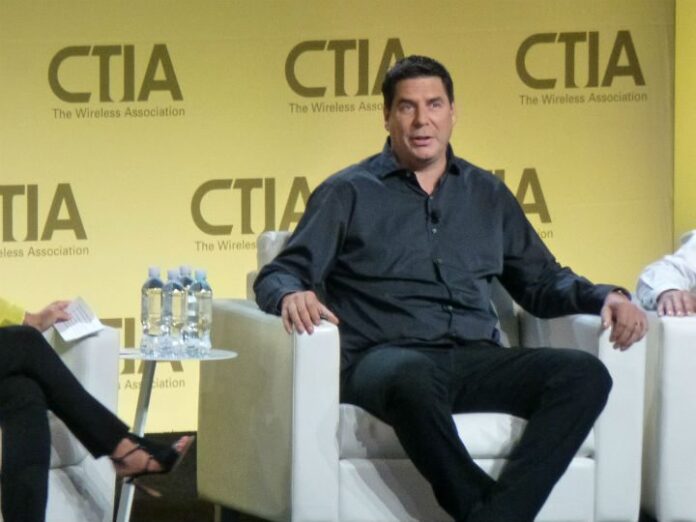Claure comments on Sprint efforts related to market share, cost and network
Sprint CEO Marcelo Claure last week spoke at the Goldman Sachs Communicopia event and highlighted the carrier’s moves related to network quality, market share and cost in a wide-ranging conversation.
Claure participated in the event last year as well. At the time, he commented on what he would do as CEO to cut costs at the fledgling service provider, as well as efforts to improve network quality and boost Sprint’s market share relative to competitors AT&T Mobility, Verizon Wireless and T-Mobile US.
The moderator began the discussion with Claure by asking for updates on those three points.
“I think we’re doing good. It has been a fun year,” Claure said, adding that, “Being a public company CEO is highly overrated. We talk about three things that we wanted to accomplish this first year. I wanted to make sure Sprint was back in the game. A year later, we’re back at taking customers away from [competitors]. We’ve been a pretty aggressive carrier.”
He specifically called out Sprint promotions to cut competitors’ customers’ bills in half and the iPhone Forever promotional campaign. In terms of customer service, he mentioned the Direct 2 You promotion, which sees Sprint reps come directly to customers, and a deal with Radio Shack that sets up branded Sprint retail locations in hundreds of the electronics retailers’ storefronts.
“I think it has been good to put Sprint back in the game from a competitive position,” he said.
On the cost side, Claure touted cutting some $1.5 billion in costs and said, looking forward, “We’re committed to basically doing the same or more. We definitely have to take cost out.”
Then, on the network side, Claure said he puts a lot of stake in Rootmetrics comparative carrier ratings.
“Network has been fascinating,” he said. Last year, “We were drop-dead last. We were last in absolutely everything. It has been a year later and we’re third. I think, more importantly … is we have a great network plan and I’ve been very public in saying by the end of 2017, I want Sprint to be the No. 1 or No. 2 carrier. Network is the most important aspect.”
A major thrust of Sprint’s network improvement plan is a massive rollout of small cells, with some estimates pegging the total deployment figure at some 70,000 units.
Mobilitie is expected to be a primary partner for Sprint, charged with securing the sites and negotiating terms for deployment. Deployment of 70,000 outdoor small cells would require the acquisition of roughly the same number of discrete sites. Operators typically look for utility poles, lamp posts, church steeples and other structures that rise above most roof levels. Most sites will require zoning, permitting and negotiations with municipal authorities.
Claure also touched on his relationship with parent company SoftBank, describing conversations with SoftBank CEO Masayoshi Son.
“Can we really make this happen? Can you really turnaround Sprint? Can we be profitable, can we gain market share? Now we have a plan. Sprint is potentially the largest value creat[or] of the SoftBank group. At the end of the day, the way everyone is going to judge us is: Are we able to return Sprint to positive cash flow? I think Sprint has been in turnaround mode for I don’t know how many years. We’re going to put all we have in making sure Sprint is a great story of success.”
Demonstrating his faith in Sprint returning to making money, Claure talked about his agreement to forego raises and bonuses, instead spending $25 million of his own money on Sprint stock.
Claure will start seeing a return on that stock buy if and when Sprint stock gets up to the $8 per share mark and sustains that value. Right now, the stock is going for about $4.61 per share.
“This is a challenge for me,” Claure said. “I believe it can get done.”

